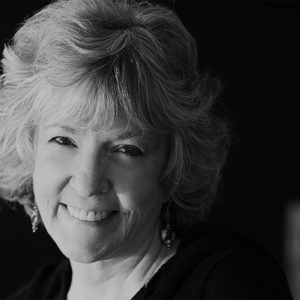It may be uncouth to look forward to crime, but looking forward to crime writing, that’s a noble literary activity, surely. It’s January, which means we have many months of books to anticipate, a full slate of crime, mystery, and thriller. To kick off the year, we’ve searched within our souls and the souls of our accomplices (ie—booksellers, mostly) to come up with a list of the year’s most anticipated crime books.
Let’s say up front, we’re taking a broad view of “crime,” a genre as many-faceted as its greatest characters—sometimes there’s a felony involved, sometimes a mystery; or else it’s just a tone, a curiosity, an investigation or a particular view of life and social injustice that gets us hooked. Some of the works on this list count as pure entertainment; some channel our frustrations into acceptable channels, and some make us doubt the very foundation of our lives. Some are marked by pathos—we’re all happy to see Michelle McNamara’s book coming out, yet we continue to mourn the loss of its passionate author. No Sue Grafton book will appear on any anticipated list this year. As we learned last week, the alphabet stops, forever, at Y.
Whatever the form or category, crime is a deeply felt, deeply engaged kind of literature, and there’s plenty of it coming our way in 2018. Thanks to contributing editor Lisa Levy, Charles Perry and the crew at Otto Penzler’s The Mysterious Bookshop, Bobby McCue, long-time manager of the now-closed Mysterious Bookstore in LA, Scott Montgomery from BookPeople, Luisa Smith from Book Passage, Patrick Millikin from Poisoned Pen, and Mike Bursaw (aka “Mystery Mike”), all of whom helped develop this list. More thanks to all the authors whose work we’re so eager to read, all probably hard at work on their next novel.
JANUARY
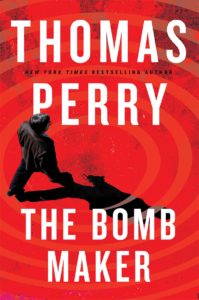
Thomas Perry, The Bomb Maker
Some concepts cut straight to the core of suspense, none more than the ticking bomb. Perry’s grasp of pacing and characterization is always sharp; in The Bomb Maker, he has a plot perfectly suited to his skills. It also provides readers with chilling insight into a dark area of expertise.
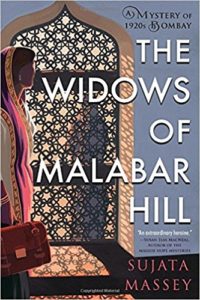
Sujata Massey, The Widows of Malabar Hill
Follow the first female solicitor of Bombay through the roaring 1920s, as she takes on a complex estate case only to become embroiled in murder. Sujata Massey is well-known for her historical fiction; The Widows of Malabar Hill is the first in a new series, and should continue to deliver the same intricate plotting and rich detail as her previous series.
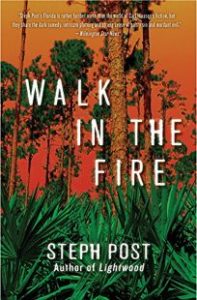
Steph Post, Walk in the Fire
A relatively new author in the crime-fiction scene, her first book A Tree Born Crooked flipped my fiction world upside-down. This continued with last year’s Lightwood and I can’t wait to see what she does with northern Florida this time. – Bobby McCue, formerly of the Mysterious Bookstore
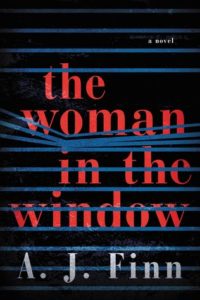
A.J. Finn, The Woman in the Window
This ode to Hitchcock’s Rear Window, and film noir in general, takes us into the claustrophobic world of a woman confined to her home by agoraphobia and crippled further by self-doubt and drug-induced hallucinations. When she witnesses a murder, her infirmities become even more of an issue.
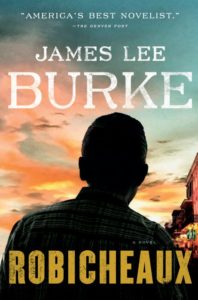
James Lee Burke, Robicheaux
Anytime there’s a new release from James Lee Burke, it’s cause for celebration. And when that new book is a Dave Robicheaux novel, we’re in for a special treat. In Robicheaux, Burke’s jaded detective, decamped from New Orleans to the New Iberian bayous, is the main suspect in a murder case. Expect rich prose and dark meditations on the nature of life, addiction, and grief.
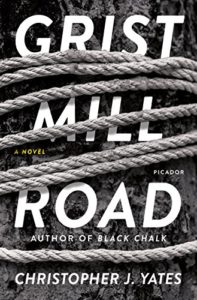
Christopher J. Yates, Grist Mill Road
There are many intriguing paths in Christoper Yates’ propulsive new novel, and with skill and grit, he masterfully draws us along each one. A horrific event of their youth haunts Patrick, Hannah, and Matthew, casting its shadow over their lives, ever more urgently demanding a final reckoning. Weaving the story between each characters’ differing accounts, we can appreciate how easily small misunderstandings can metastasize into unforgivable actions. From the beauty of the upper New York countryside to the brutality of New York City life, Yates skillfully reveals each layer of this mystery and the complexity of the characters within.–Luisa Smith, Book Passage
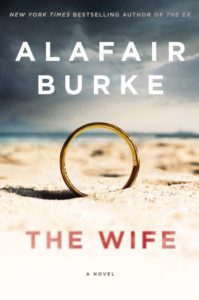
Alafair Burke, The Wife
The Wife is shaping up to be a lightning rod of a novel: a domestic thriller about the wife of a prominent New York intellectual accused first by an intern, then by other women of sexual improprieties and assaults. Burke has the writing chops to handle the most nuanced social material, and it doesn’t hurt that in addition to literary pursuits, she also has a sharp legal mind.
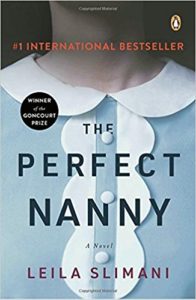
Leila Slimani, The Perfect Nanny
This is the perfect intersectional crime novel! When a lawyer goes back to work after years of child-rearing, she and her husband hire a highly qualified nanny to look after their children, setting in motion a tale full of menace and woe. A brutal, inexplicable crime on the first page sets us up for a brooding, beautiful exploration of race, class, gender, and performativity, mingled with a gripping plot.

Leslie Klinger (ed.), In the Shadow of Agatha Christie: Forgotten Fiction by Women Crime Writers
The title of this one is a bit of a misnomer – Klinger, as one of the world’s foremost early crime fiction experts, has selected a wide array of stories by women crime writers in the Anglophone world, taking us through the birth of the genre in the 19th century up to just before WWI.
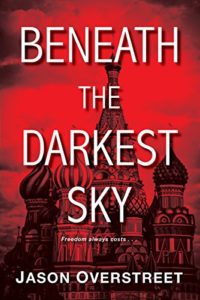
Jason Overstreet, Beneath the Darkest Sky
In Overstreet’s first novel, architect Sidney Temple is recruited by the FBI to spy on Marcus Garvey’s back-to-Africa movement, but instead chooses to report on both Garvey and the FBI to WEB du Bois. Now an international consultant under the new name of Prescott Sweet, Sidney has moved the family to Russia for the second installment in the series. He’s slated to work for the American embassy, yet Moscow in 1937 proves treacherous for a man walking the tightrope between diplomacy and espionage.
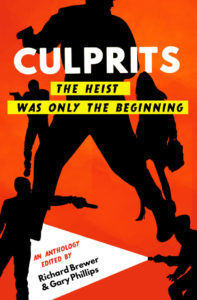
Richard Brewer & Gary Phillips (eds), Culprits: The Heist was Only the Beginning
Richard Brewer and Gary Phillips, two of crime fiction’s best, have devised a novel idea for an anthology. A heist is executed, then as usual, it goes sideways. What is unusual is that the fallout is then written as short stories by the likes of David Corbett, Gar Anthony Haywood, and Zoe Sharp each focusing on an individual member of the robbery. Not only is this a great idea, with the people involved, it should be one that is well executed.–Scott Montgomery, MysteryPeople
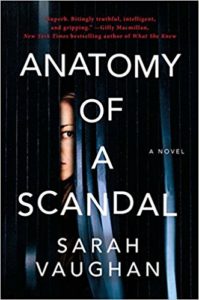
Sarah Vaughan, Anatomy of a Scandal
A politician is immersed in a sex scandal that morphs into a rape trial, prosecuted by a barrister with secrets of her own. This book explores the messy, complicated trauma of a rape trial, with flashbacks detailing the entitled debauchery of private college clubs. Vaughan’s discussion of workplace harassment and assault makes Anatomy of a Scandal as timely and relevant as it is necessary.
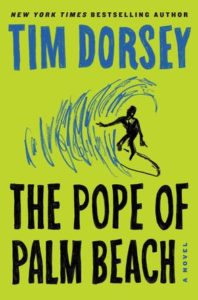
Tim Dorsey, The Pope of Palm Beach
Dorsey’s Florida is always more bizarre and exhilarating than even the state’s crazy headlines and internet memes would suggest. In his newest novel, a pair of dyed in the wool Florida beach bums go on a pilgrimage from Key West to their old stomping grounds up the coast. For those not already devoted to Sunshine State Noir, this novel could well be your entry point.
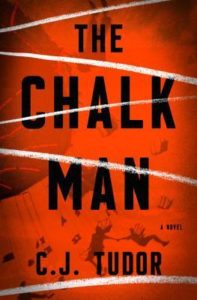
CJ Tudor, The Chalk Man
Thrillers are rarely both intensely suspenseful and wonderfully nostalgic, but CJ Tudor manages to pull off both in this fantastic debut mystery. Four friend’s youthful games takes a dark turn when they make a gruesome discovery in the woods. 30 years later the dark mystery that has haunted their lives reemerges with a vengeance. Tudor’s skillful plotting and intoxicating prose shine, as every shocking revelation deftly ratchets up the tension until the stunning conclusion.–Luisa Smith, Book Passage
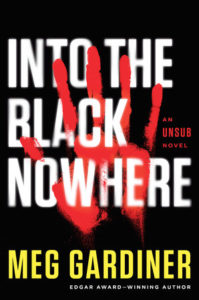
Meg Gardiner, Into the Black Nowhere
Caitlin Hendrix, heroine of Gardiner’s fiendishly creative UNSUB, returns to the page to tackle her first official FBI case, a series of abductions near to the I-35 corridor in Texas. Gardiner’s latest villain is loosely based on Ted Bundy, including his charm and volunteer work at a suicide hotline, and Gardiner uses her villain’s after hours work on the phones as a way of addressing Hendrix’s deep and abiding personal pain, for a fast-paced thriller that also functions as a travel guide, with mouth-watering descriptions of taco stands providing relief from stomach-churning crime scenes.
FEBRUARY
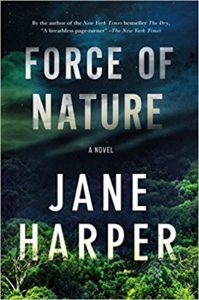
Jane Harper, Force of Nature
The Dry seemed to be on every year end list this year, and we can’t wait to read Harper’s next Aussie noir, Force of Nature. While Harper frequently garners comparisons to Tana French, we find her dry, knowing style to be a thing all her own. In her latest, a woman, Alice, goes missing from a corporate retreat, possessing secrets too sinister to merely have gone lost in the desert. The company on retreat was plagued with problems even before Alice’s disappearance, and just to add to the number of suspects, there may be a serial killer hiding in outback.
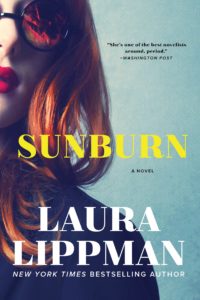
Laura Lippman, Sunburn
Is there any author you’d rather see channeling her inner James M. Cain? Lippman’s latest novel is inspired by that master of disorienting suspense. A man and a woman, seemingly drifters, cross paths one summer day in a quiet village in Delaware. Centripetal force takes over and their relationship grows more intense, with increasingly sinister undertones.
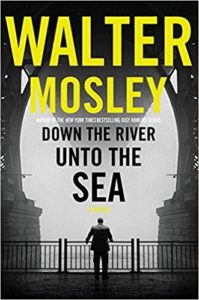
Walter Mosley, Down the River Unto the Sea
Mosley’s newest standalone has the markings of a classic hard-boiled New York novel, beginning when a troubled private eye takes a case with echoes from his own traumatic past that pits him against the NYPD and city officials. It’s also a poignant page-turner whose larger themes – corruption, institutional racism, and the horrors of solitary confinement – speak to some of today’s most pressing issues. –Charles Perry, The Mysterious Bookshop
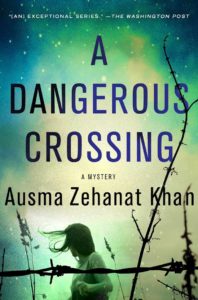
Ausma Zehanat Khan, A Dangerous Crossing
Khan’s community policing series has walked a careful tightrope between entertainment and social responsibility, each volume addressing a societal ill with a high-octane investigation. Her fourth in the series is no exception. Set on a Greek isle and with a plot involving the Syrian refugee crisis (perhaps I should call it the European closed borders crisis), Khan’s latest leads us on a suspenseful hunt for a missing woman and through a perilous and uncertain landscape.
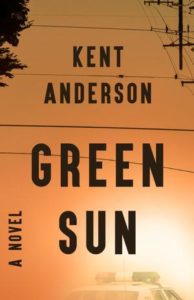
Kent Anderson, Green Sun
Anderson’s first new novel in nearly two decades is cause enough for celebration. Green Sun is about a morally distressed cop in 1980’s Oakland, so it’s sure to plenty of cultural resonance. Anderson has a reputation as a “writer’s writer.” If you haven’t read him before, follow your favorite authors’ example and dive into his work now.
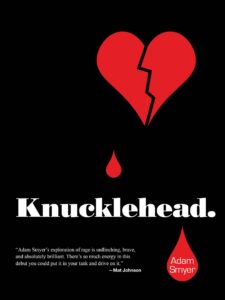
Adam Smyer, Knucklehead
While not strictly a crime novel, Smyer’s debut Knucklehead does contain a whole lot of guns, violence, and rage, as well as plenty of love and sadness. A black lawyer in the late 80s through the mid-90s deals with micro and macro aggressions from a society determined to treat him as a criminal. Also, there are cats. Lots of cats.
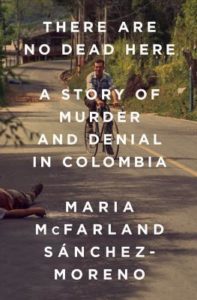
Maria McFarland Sanchez-Moreno, There Are No Dead Here
Sanchez-Moreno, executive director of the Drug Policy Alliance and former Human Rights Watch Americas hand, turns her sites on the rise of paramilitary groups in Colombia. Their role in the international drug trade, and the killings that facilitated their decades-long rise, is a story that bears telling, repeating, and close study.
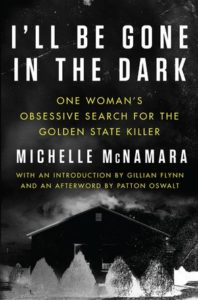
Michelle McNamara, I’ll Be Gone in the Dark
The breadth and intensity of McNamara’s investigation into the man she dubbed the “Golden State Killer” would be reason enough to read this book. The fact that she also ruminates on her own lifelong interest in crime and the personal stories that set her on a life’s path makes this an even richer read. It’s heartbreaking to know she didn’t live long enough to bring her subject to justice.
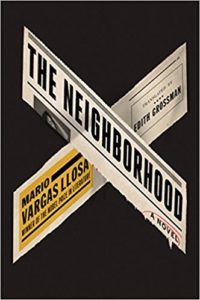
Mario Vargas Llosa, The Neighborhood
The Nobel Laureate has often flirted with various forms of crime writing. In The Neighborhood, he jumps headlong into the genre, with his own idiosyncratic, learned take on the detective novel. Of course, it’s also a political thriller and a scathing portrait of the Fujimori years in Peru.

Matthew Sweet, Operation Chaos: The Vietnam Deserters Who Fought the CIA, The Brainwashers, and Themselves
Ever wonder what happened to the generation of young people who left the States rather than submit to the draft, the ones who never quite made it home during the amnesty, or the ones who never got over the violation of trust they felt when the government came for them? Reporter Matthew Sweet tracks them down around the world, and their life stories are even stranger than you could possibly imagine.
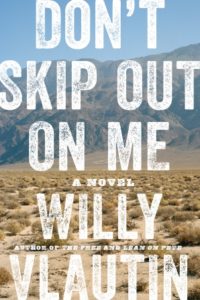
Willy Vlautin, Don’t Skip Out on Me
Willy Vlautin’s Don’t Skip Out on Me is as bleak as any classic noir, concerned with loneliness, displacement, and the violence of blood sports mingled with the dangers of everyday life. His latest follows a man caught between two worlds, feeling at home in neither, as he grows up and leaves his kindly adoptive parents to pursue a life in boxing.
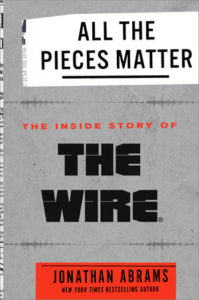
Jonathan Abrams, All the Pieces Matter: The Inside Story of The Wire
Abrams is a master of the oral history, and this time he has his sights set on that most pivotal of crime-pop culture moments: The Wire. Going in deep with the creators, cast, crew, and all the flies on the wall, Abrams expands our view of what the show meant and offers up every choice tidbit you ever wanted.
MARCH
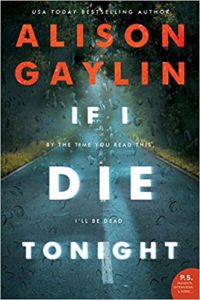
Alison Gaylin, If I Die Tonight
Gaylin continues her exploration of celebrity and murder begun by her last book, What Remains of Me, but takes a turn away from the depersonalized gaze of the paparazzi in favor of the all-too-personal panopticon of social media, as a mother tries to protect her children online and offline after a hit-and-run in town is blamed on her eldest, despite the involvement of a faded pop star, who’s claimed-to-be-stolen vintage car is responsible for the deed.
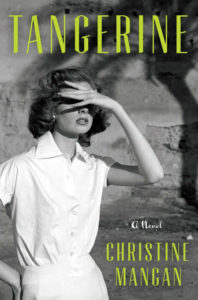
Christine Mangan, Tangerine
Mix two parts Highsmith, one part Paul Bowles, one part Donna Tartt, and several parts (I don’t actually know how to mix drinks) Christine Mangan for this sultry, sweaty tale of expats in Algiers, haunted by their college secrets. A bright young thing with a haunted past goes to join her college pal in Algiers, causing chaos and uncertainty for her friend and her new husband.
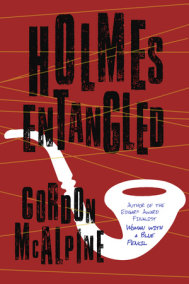
Gordon McAlpine, Holmes Untangled
McAlpine’s new meta-detective novel looks to be the most post-modern take on Sherlock Holmes since Chabon’s The Final Solution. McAlpine’s work is perfect for those who enjoyed the Will Ferrell film Stranger Than Fiction, but wished it wasn’t a comedy.
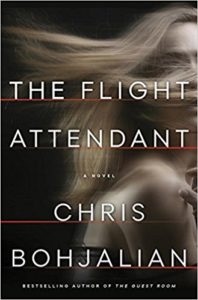
Chris Bohjalian, The Flight Attendant
Between Elmore Leonard’s Rum Punch and the Air France cocaine scandals, you would think flight attendants would be a staple of crime fiction. What better profession for a story about a man/woman on the run, caught up in international intrigue? And yet their appearances in the canon are few and far between. Thankfully, suspense master Chris Bohjalian is on the beat with this year’s new release, about a hard living airline employee who wakes up in Dubai next to a dead body and has to piece together the sordid story.

Alice Feeney, Sometimes I Lie
“My name is Amber Reynolds. There are three things you should know about me. 1. I’m in a coma. 2. My husband doesn’t love me. 3. Sometimes I lie.” Who can resist such a compelling premise for a thriller? Narrating both from her hospital bed and from a week before her accident, Reynolds tries to piece together what happened to her. –Lisa Levy, Literary Hub, Contributing Editor
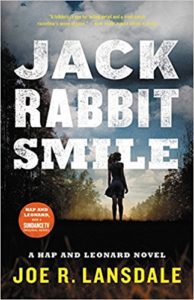
Joe R. Lansdale, Jackrabbit Smile
A new book by premiere Texan and author Joe Lansdale–I’m in. It’s a new Hap and Leonard–I’m salivating. Hap and Leonard are hired by a racist band of Pentecostals to find a missing woman that puts them up against an even crazier religious sect that believes Jesus is coming back with lizard men–Don’t get between that book and me. Lansdale has one of the unique and entertaining voices in modern literature and the banter between Hap and Leonard never disappoints. –Scott Montgomery, BookPeople
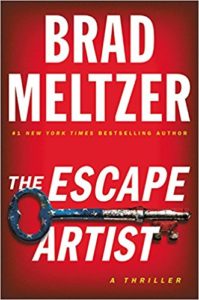
Brad Meltzer, The Escape Artist
Early readers are whispering this might be Meltzer’s best book yet, and it’s certainly rich material he’s mining here: a soldier presumed dead is on the lam, running from an inscrutable conspiracy. She’s not just any soldier, though, but one of the army’s “artists-in-residence,” a little known program that sends painters into battle areas and asks them to create.

Donna Leon, The Temptation of Forgiveness
The Temptation of Forgiveness is Leon’s twenty-seventh novel, which means at this point, her skills are damn well honed. Her version of Venice, thoroughly investigated by her Commissario Guido Brunetti, is awash with intrigue, elegance, scholarship and several grisly crimes. The classics usually come to bear, and this time it’s Sophocles’ Antigone playing the minor chords.
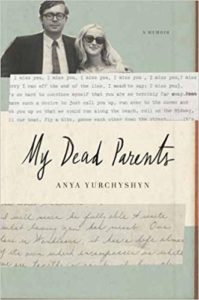
Anya Yurchyshyn, My Dead Parents
Many readers recall Yurchyshyn’s 2013 Buzzfeed article about the deaths of her parents and the revelations that called into question everything she once believed about their relationship. Now she’s taken the investigation even further. Traveling to the Ukraine, where her father died in what was deemed an accident, she uncovers darker secrets about her family’s story. This promises to be one of the year’s most talked-about “crime” memoirs.
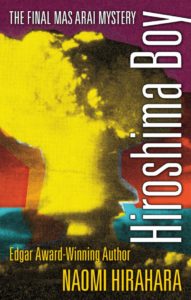
Naomi Hirahara, Hiroshima Boy
Hirahara finishes up her Mas Arai series with Hiroshima Boy, the seventh to feature the gardner-turned-inspector. In her conclusion to the series, Mas Arai travels to Hiroshima to bring a friend’s ashes home to family, only to become embroiled in the investigation of a teenager’s murder.
APRIL
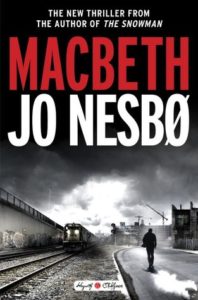
Jo Nesbo, Macbeth
The Hogarth Shakespeare series, where modern writers make their mark on Shakespeare’s tales, continues with Jo Nesbo’s contemporary adaptation of Macbeth, featuring Macbeth as a crime boss, and drug dealers as the stand-ins for the play’s witches.
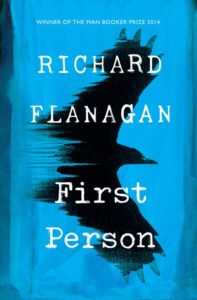
Richard Flanagan, First Person
Flanagan’s story of a ghost writer approached by a white collar criminal slash con man to pen his memoir sinks into a tense battle of wills between Kif Kehlmann, the penniless but morally upright writer, and the shady Seigfried Heidl, on the verge of going to trial for defrauding banks of $700 million dollars. Flanagan interrogates what makes a con man (and what makes an honest one) in this study of two men thrown into a not quite symbiotic relationship.

David Downing, The Dark Clouds Shining
For decades now, Downing has been writing some of the best, most nuanced historical thrillers around. The latest in his McColl series, which is set during WWI, takes readers to Moscow during the Bolshevik ascendancy, as the country smolders. Expect intrigue and historical detail galore; nobody fills out the lush everyday particulars quite like Downing.
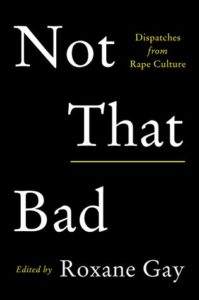
Roxane Gay, Not That Bad: Dispatches From Rape Culture
Roxane Gay has assembled this anthology from an incredible roster of contributors, each essay layering another set of thoughts, ideas, and experience onto a collection that explores how rape culture can permeate every facet of our lives.

Philip Kerr, Greeks Bearing Gifts
The latest in Kerr’s Bernie Gunther series finds the famously ambivalent detective living in 1957 under a false name and taking a job as a claims adjustor for Munich RE, the German insurance giant. The new vocation sends him to Athens, where fraud, politics, and the antiquities trade dominate the hotel bar scene, and Gunther finds himself at the center of yet another murder investigation that implicates Germans and the long shadow their crimes still cast over Europe.
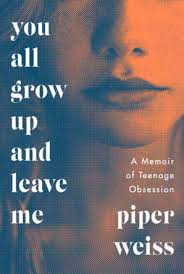
Piper Weiss, You All Grow Up and Leave Me
Weiss’ true crime memoir that looks back at the elite prep school scene of 1990s Manhattan and investigates a popular tennis coach later exposed as a brutal sexual predator. This one’s also a meditation on the nature and vulnerabilities of teenage friendship in what seemed to be a world of protection and privilege.

Michel Bussi, Time Is a Killer
One of France’s most celebrated crime authors turns his attention to Corsica, that cloistered, familial outpost in the Mediterranean. His heroine, Clotilde, goes back to the island for the first time since a childhood tragedy and discovers the extent of her family’s dark past. This one’s another reason why many see 2018 as a banner year for French crime fiction in the US.

Michael Kardos, Bluff
Close Up magicians, sleight-of-hand artists, card sharps, card cheats–they’re all skilled practitioners of misdirection and, as it turns out, the perfect cast of characters for a mystery novel. Former magic prodigy Natalie Webb, now hard up and in need of a gig, explores the world of underground poker games, only to put her skills to use on the con to end all cons. The twists here are genuinely shocking; you’ll never look at a friendly poker game quite the same way.
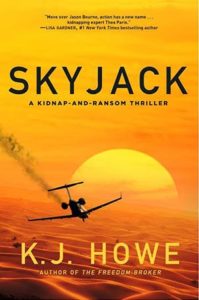
KJ Howe, Skyjack
Looking for your next high-octane, jet-setting, ass-kicking, female-driven thriller? Then look no further, because K.J. Howe has a second volume in her Thea Paris series coming out soon, and we can’t wait to read more about this kidnap negotiator and international woman of mystery, who could almost be the next Bond, except she wouldn’t have time for all that carousing.
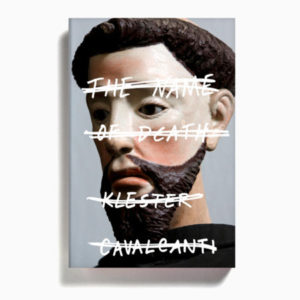
Klester Cavalcanti, The Name of Death
Julio Santana could have been a fisherman, yet he ended up recruited by his uncle to become one of Brazil’s most efficient killers-for-hire, with around 500 bodies to his name by the end of his career. We’re looking forward to reading this work of true crime reportage by Brazil’s gonzo journalist Cavalcanti in advance of the biopic coming out this year.
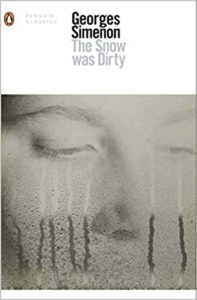
Georges Simenon, The Snow Was Dirty
Penguin Classics is reissuing Simenon’s romans durs, or hard novels, his term for his bleak post-war masterpieces. Previously reissued by NYRB as “Dirty Snow,” the more accurately translated title heralds an even more faithful approach by Penguin to the original. This classic noir has one of crime fiction’s most despicable anti-heroes, who achieves redemption only by being just as uncooperative with the Nazis as he is with everyone else he comes across.
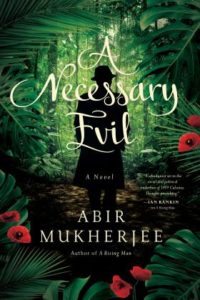
Abir Mukherjee, A Necessary Evil
Muckerjee continues his chronicles of interwar India with an investigation of a prince’s murder, taking his opium-addicted protagonist and his cheerful assisting detective on a road trip to a semi-independent principality where traitors are executed by elephant.
MAY
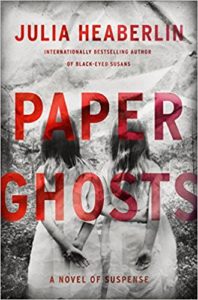
Julia Heaberlin, Paper Ghosts
Heaberlin’s been on our radar since her ever-so-creepy Blackeyed Susans, and she once again looks likely to capture the quiet menace and rugged beauty of the Texas countryside. In her latest, a woman looking for revenge kidnaps a suspected serial killer with Alzheimer’s and takes him on a road trip to his old hunting grounds, hoping to spark his memories.
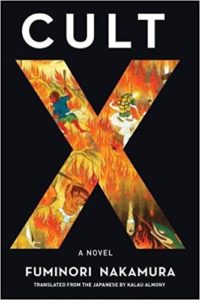
Fuminori Nakamura, Cult X
Fans of Japanese modernism will delight at Nakamura’s latest, Cult X, a Ryu Murakami-esque tale of two cults and their charismatic leaders, one defined by abstemious behavior, and the other by excess. One man is sent by each cult to spy on the other, while searching for his lost (and possibly dangerous) ex-girlfriend. Long asides about Buddhism and the nature of reality, like the banal conversations of a Tarantino film, only add to the novel’s sense of menace.
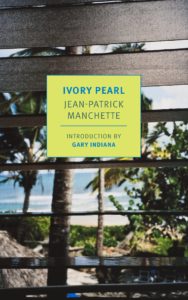
Jean-Patrick Manchette, Ivory Pearl
Left unfinished after the author’s death and published posthumously in France in 1996, Jean-Patrick Manchette’s final novel is a far-reaching tale of espionage and international intrigue, a departure for a writer otherwise known for the terse existential thrillers that reinvigorated French crime fiction in the decades before. The first-ever English translation of the book, widely regarded as Manchette’s masterpiece, is cause for celebration. ?Charles Perry, The Mysterious Bookshop
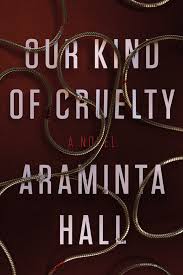
Araminta Hall, Our Kind of Cruelty
Like Thompson’s The Killer Inside Me, Nabokov’s Lolita, or Highsmith’s Ripley novels, Hall’s Our Kind of Cruelty draws us into the twisted mind and far-fetched excuses of a killer, telling his own tale. The perfect unreliable narrator, gaslighting his way to anti-hero greatness, with a stunning conclusion that chills with its unadorned bitterness and terrifying plausibility.
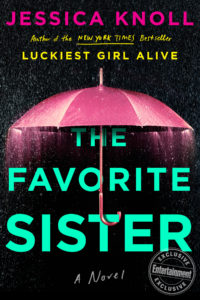
Jessica Knoll, The Favorite Sister
Jessica Knoll’s second book looks likely to live up to the promise of her first, with a clever, biting plot involving murder and reality television. Read this one while you’re waiting for her first to be made into a movie (Reese Witherspoon is of course involved, and we couldn’t be happier).
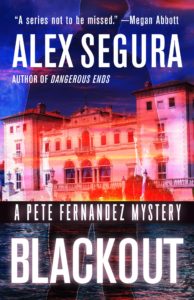
Alex Segura, Blackout
Segura’s Pete Fernandez series is an homage to the great hardboiled tradition and takes the genre’s investigative mandate seriously, always shining light on some hidden pocket of society. In the latest installment, Fernandez goes back to Miami and gets promptly ensnared by two of the state’s enduring passions: religion (this time a cult) and conspicuous, power-hungry wealth.
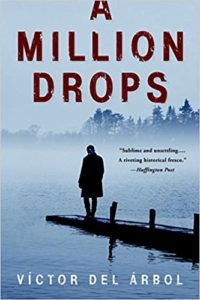
Victor Del Arbol, A Million Drops
While we’re suckers for any story that uses crime fiction conventions to process lingering historical trauma, this tale of Spanish fascists, Russian mobsters, and communists of many nations should please any reader who likes their outlook bleak and their intrigue international.
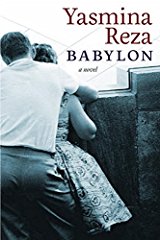
Yasmina Reza, Babylon
Looking for the crime novel version of the free-range chicken skit from the first episode of Portlandia? Probably not, but we’re all happy to know that one exists. After a dinner argument over chicken leads to murder, it’s up to the neighbors to help a murderer cover up the untimely death of his wife.
(The cover remains a mystery…)
Ruth Ware, The Death of Mrs. Westaway
I’ve adored Ruth Ware’s work for some time, ever since I picked up her first playful puzzler of a mystery, In a Dark, Dark Wood. She’s been making her way through classic mystery settings, making each her own, and her new volume promises to continue the trend, in a tale of a con artist headed to a family funeral that promises to be the most entertaining fictional British burial since the film Death at a Funeral first graced our screens.
JUNE
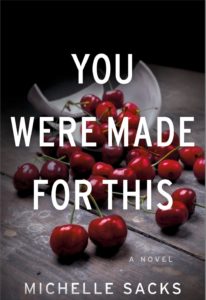
Michelle Sacks, You Were Made For This
Sacks’s debut novel focuses on an American family who have decamped for the idyllic Swedish countryside. Wife and mother Merry, her husband, Sam, and their son, Conor, seem to be thriving in their new circumstances. But all is upended by a visit from Merry’s old friend Frank, who befriends their neighbors and insinuates herself into their domesticity. Frank reveals how the family’s life is not as perfectly cozy as it seems in this psychological thriller.
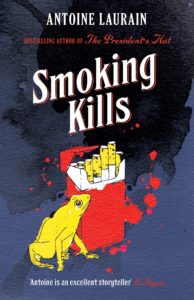
Antoine Laurrain, Smoking Kills
Years after quitting, a man decides to pick up the smoking habit again, only to find no satisfaction from his cigarettes unless he pairs his consumption with killing. This dark parody of classic romans noirs is one more reason to love the French, and I can’t wait to read it.
PLUS A QUICK PEEK AT THE 2ND HALF OF 2018…
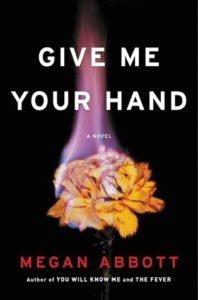
Megan Abbott, Give Me Your Hand
Abbott’s latest to explore the complexities of womanhood, Give Me Your Hand, takes us on a journey through friendships forged by science, wrecked by secrets, and plagued by academic competition. Fierce loyalties turn to fiercer rivalries in a novel that’s sure to pass the Bechdel Test on just about every page.
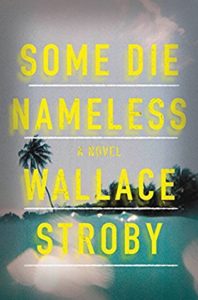
Wallace Stroby, Some Die Nameless
Stroby, already a crime fiction luminary, is channeling his inner Elmore Leonard more and more these days, and this time he’s headed to Leonard’s old stomping grounds, a Florida populated by rogues, hustlers, reporters, and mercenaries. Expect some quality thrills and madcap action.
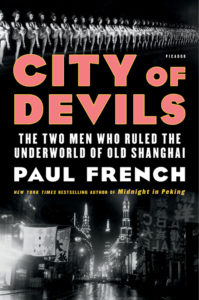
Paul French, City of Devils: The Two Men Who Ruled the Underworld of Old Shanghai
Paul French may write about crime fiction all over the world, but he makes his literary home in China. Previously the author of Midnight in Peking, a true crime book detailing the sordid murder of an Englishwoman in the Chinese capital, as well as many other works, he returns to the true crime form with an engaging and salacious tale of the Shanghai underworld.
















